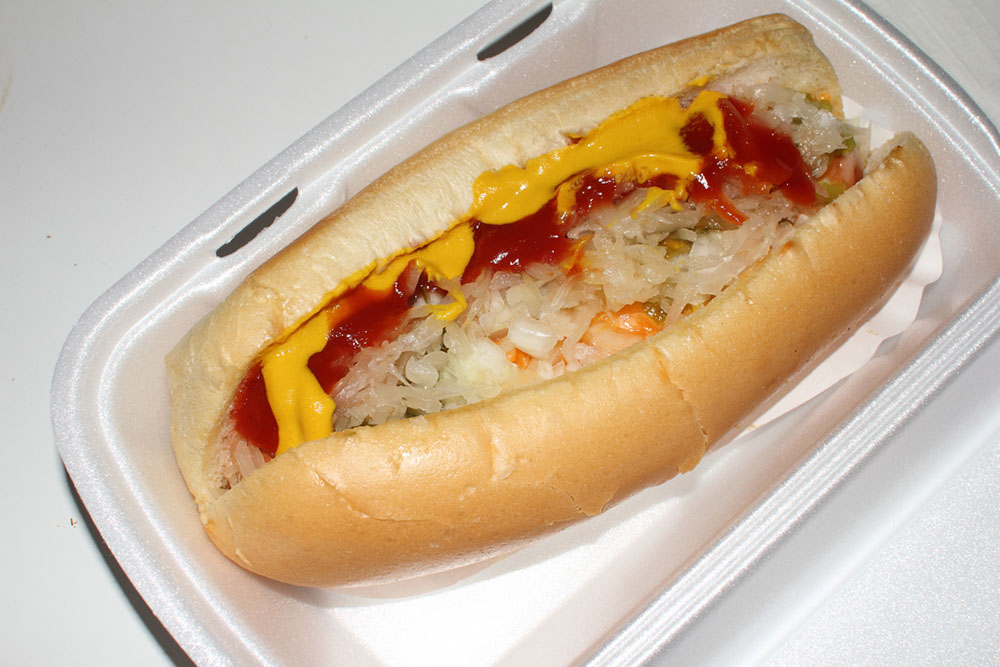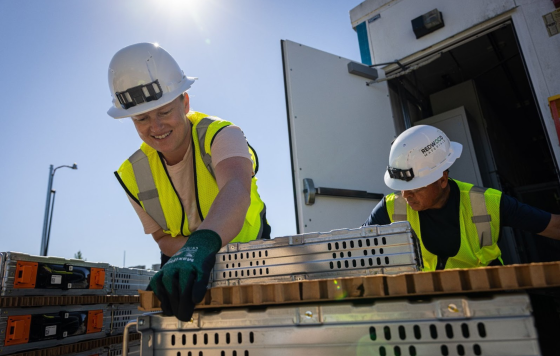
Many of us have been in the awkward situation of attending a family picnic or community event where we line up for food and discover the only choice for dishware is polystyrene (ex. Styrofoam and similar products). This is the moment where I tend to sigh and assess my options. I can either skip eating, ask if there is another option and use this as a teaching moment, or pile food on my polystyrene plate adding to my daily intake of carcinogens. I’ve taken all three approaches depending on my mood and level of hunger. Bringing my own dishware is another option, but like many people I am not always that organized. This situation should become increasingly rare as awareness about the negative health and environmental impacts of polystyrene dishware grow, leading people to choose safer alternatives.
Styrene and Cancer
News about styrene, a chemical found in polystyrene, and its links to cancer made headlines in 2014 when the National Toxicology Program listed styrene as “reasonably anticipated to cause cancer.”
How are we exposed to styrene? You may have heard not to microwave in plastic because chemical additives have been shown to leach when exposed to high heat. The same applies to polystyrene cups and plates. That steaming coffee or hot mac and cheese can also cause styrene to leach out of your polystyrene cup or plate.
Robbinsdale Parent Educators Say No to Foam
Appalled at the thought of having a side of styrene with your mac and cheese? So were the educators at a Robbinsdale Early Child and Family Education program. After a group of educators attended one of our Healthy Home Presentations and learned about the health concerns of polystyrene products, they took action. The Parent and Family Educators got together and committed to getting the polystyrene out of their classrooms. This was a journey that involved some research on alternatives and behavior change.
As Nicki Murphy, ECFE educator, described “ We gave parents the opportunity to bring in their reusable mugs and gave them a place in a cabinet in case they chose to keep them here. By the time we got our compostable cups, many parents were already bringing their own. “
Due to this effort, 300 parents and educators have reduced their exposure to a carcinogen.
Minneapolis Bans Polystyrene
Since Clean Water Action moved our office to downtown Minneapolis, I’ve seen a big change in the types of containers skyway restaurants serve my food in. Many restaurants in the skyway do not have space for dishwashers so most food is served in disposable containers. The container of choice use to be polystyrene for many restaurants. This changed in 2015 when Minneapolis joined dozens of other cities from New York to Portland who banned polystyrene food containers. Now my burrito and sushi are served in compostable and recyclable containers.
Polystyrene Foam = Trash
Minneapolis has shown it is possible to forego foam and other Minnesota cities should follow. We still throw away a lot polystyrene foam containers in Minnesota- up to 10 million containers a year. Most communities do not recycle polystyrene due to its difficulty and cost. Polystyrene foam also doesn’t break down easily, whether it is put in a landfill or littering our neighborhoods. As the foam breaks into smaller pieces, animals mistake it for food and either choke or clog up their digestive system.
This type of situation was particularly upsetting to six year old Henry, known on the internet as "the Emotional Environmentalist." A video of Henry who was dismayed about a chickadee feeding a piece of plastic trash to her young went viral. Rather than give in to his despair, Henry took action. He now patrols his neighborhood for trash, blowing his whistle when someone litters.
Whether we patrol our neighborhoods for litter, support a local ban or end the use of polystyrene in our classroom, we can all do our part to save our planet and ourselves. Thanks for the reminder Henry.
Guide to Safer Alternatives to Polystyrene
Tiffins: Non-leaching, stainless steel tiffins are a good alternative to plastic. This popular Indian lunch box contains different compartments which stack on top of each other and seal firmly. Reusable and light weight, they are perfect for carrying food long distances to your favorite picnic site.
Stainless Steel Water Bottles: Light weight, reusable and non-leaching, stainless steel water bottles can be used for any cold beverage.
Compostable Plates, Cups, Utensils: Avoid harmful chemical additives and eliminate waste by using compostable products. Look for these certifications to ensure your products will break down quickly, completely and safely: Ok Compost logo–will biodegrade in your home compost; BPI Compostable logo- will biodegrade in commercial composting facilities.
Products to Avoid
Beverages in pouches: Not only are juice and other beverage pouches not recyclable, they often become litter. The plastic in this packaging breaks down into smaller particles in the environment, transporting toxic chemicals into our water.
Polystyrene plates and cups: Polystyrene food containers leach styrene, a cancer causing chemical, when exposed to heat. You also can’t recycle them in most communities.


